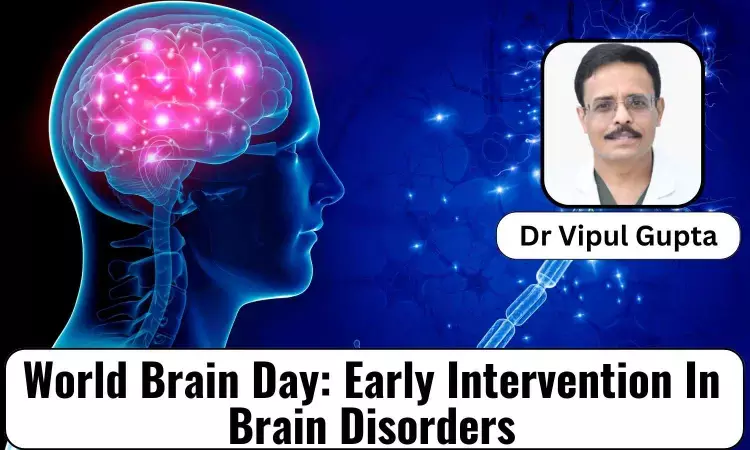- Home
- Medical news & Guidelines
- Anesthesiology
- Cardiology and CTVS
- Critical Care
- Dentistry
- Dermatology
- Diabetes and Endocrinology
- ENT
- Gastroenterology
- Medicine
- Nephrology
- Neurology
- Obstretics-Gynaecology
- Oncology
- Ophthalmology
- Orthopaedics
- Pediatrics-Neonatology
- Psychiatry
- Pulmonology
- Radiology
- Surgery
- Urology
- Laboratory Medicine
- Diet
- Nursing
- Paramedical
- Physiotherapy
- Health news
- Fact Check
- Bone Health Fact Check
- Brain Health Fact Check
- Cancer Related Fact Check
- Child Care Fact Check
- Dental and oral health fact check
- Diabetes and metabolic health fact check
- Diet and Nutrition Fact Check
- Eye and ENT Care Fact Check
- Fitness fact check
- Gut health fact check
- Heart health fact check
- Kidney health fact check
- Medical education fact check
- Men's health fact check
- Respiratory fact check
- Skin and hair care fact check
- Vaccine and Immunization fact check
- Women's health fact check
- AYUSH
- State News
- Andaman and Nicobar Islands
- Andhra Pradesh
- Arunachal Pradesh
- Assam
- Bihar
- Chandigarh
- Chattisgarh
- Dadra and Nagar Haveli
- Daman and Diu
- Delhi
- Goa
- Gujarat
- Haryana
- Himachal Pradesh
- Jammu & Kashmir
- Jharkhand
- Karnataka
- Kerala
- Ladakh
- Lakshadweep
- Madhya Pradesh
- Maharashtra
- Manipur
- Meghalaya
- Mizoram
- Nagaland
- Odisha
- Puducherry
- Punjab
- Rajasthan
- Sikkim
- Tamil Nadu
- Telangana
- Tripura
- Uttar Pradesh
- Uttrakhand
- West Bengal
- Medical Education
- Industry
World Brain Day 2023: Early Intervention Can Prevent 70% Of Morbidity & Mortality Due To Stroke - Dr Vipul Gupta

Brain disorders, including stroke, aneurysms, and AVMs, can have devastating effects on individuals and their families. These conditions demand immediate medical attention and specialized care. A stroke is a brain attack that occurs when the blood flow to the area of the brain is cut-off, and the brain cells begin to die to deprivation of oxygen supply.
This loss of brain cells during a stroke affects the particular abilities that were controlled by the brain, resulting in loss of memory, motor skills, muscle control, paralysis or even death, if left unattended. Stroke can be of two types – Ischemic (A blood vessel carrying blood to the brain is blocked by a blood clot) and Hemorrhagic (when the affected blood vessel in the brain starts bleeding due to weakened blood vessel walls).
Recognizing the warning signs and seeking timely medical assistance can make a life-saving difference. Common indicators of a stroke may include FAST: sudden weakness or numbness in the face, arm, or leg; difficulty speaking or understanding speech; severe headaches; vision problems; dizziness or loss of balance; and confusion or sudden behavioural changes. Early identification and intervention can significantly increase the chances of successful treatment and recovery, and even 70% of strokes can be prevented.
In recent years, significant advancements in technology and medical procedures have revolutionized the treatment landscape for brain ailments. The availability of cutting-edge techniques such as minimally invasive endovascular procedures, coiling, Mechanical Thrombectomy, neuroimaging advancements, and interventional radiology.
These breakthroughs have improved the precision and effectiveness of treatments, enabling medical professionals to offer targeted interventions with reduced risks and faster recovery times. Furthermore, over 80% of patients can be successfully cured if they seek medical attention early.
World Brain Day serves as a powerful platform to emphasize the importance of recognizing the signs of brain ailments and seeking immediate medical attention. By raising awareness about the critical role of early intervention and advancements in technology, we can empower individuals to take charge of their brain health and improve outcomes.
The relentless commitment of the dedicated stroke unit at Artemis Hospital towards patient care and research has earned them accolades in the medical community. Through the tireless efforts of the team, the Stroke Unit continues to push the boundaries of medical innovation, ensuring that patients receive the best possible care.
Recently, the stroke unit at Artemis Hospital was awarded the Diamond category award for the Best Dedicated Stroke Unit in the world by the World Stroke Organization.
On the occasion of World Brain Day, I urge individuals to be proactive in their health and educate themselves about the signs and symptoms of brain ailments. By acting swiftly, seeking expert medical attention, and leveraging advancements in technology, we can collectively strive for a healthier future.
Early detection and treatment are paramount, and by spreading awareness, we can save lives and reduce the burden of brain disorders on individuals, families, and society as a whole.
Disclaimer: The views expressed in this article are of the author and not of Medical Dialogues. The Editorial/Content team of Medical Dialogues has not contributed to the writing/editing/packaging of this article.
Dr Vipul Gupta MBBS, MD (Radiodiagnosis) is the Director- Neurointerventional Surgery & Co-Director Stroke Unit at Artemis Hospital, Gurugram with over 31 years of experience in his field. He specializes in Intracranial Aneurysms Embolization (coiling), Arteriovenous Malformation (AVMs), Tumour Embolization, Angioplasty and Stenting of arterial stenosis including carotid stenting and Intra-arterial Thrombolysis for stroke. He has more than 45 publications in journals and 7 chapters in books to his credit.


